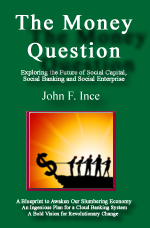The next chapter in the struggle over sound money may be the case of a newly minted felon named Bernard von NotHaus. Mr. von NotHaus was convicted this month of counterfeiting money by issuing silver coins called Liberty Dollars. His company’s website says it’s been taken down by court order, and absent a successful appeal he could spend years in jail.
Mr. von NotHaus was convicted under a section of the United States Code that makes it a crime to manufacture or pass “any coins of gold or silver or other metal, or alloys of metals, intended for use as current money, whether in the resemblance of coins of the United States or of foreign countries, or of original design.” The law was enacted during the Civil War, soon after the Union began issuing the paper scrip known as greenbacks.
It is too soon to say what Mr. von NotHaus’s grounds of appeal will be, but it is not too soon to say that his case will be one to watch at a time when so many believe our economic troubles are tied to the fact that the dollar has become a fiat currency, and when leaders world-wide are calling for a new reserve currency.
So alarming has been the collapse of the dollar that the legislatures in as many as a dozen American states are considering using their authority—under Article 1, Section 10 of the Constitution—to make legal tender out of gold and silver coins. Lest the ghost of Friedrich Hayek or any other advocate of privately issued money get any bright ideas, however, the von NotHaus verdict will stand as a warning.
The warning is contained in paragraph 33 of the indictment handed up against Mr. von NotHaus in a courtroom at Statesville, N.C. It said:
“Article 1, Section 8, Clause 5 of the United States Constitution delegates to Congress the power to coin money and to regulate the value thereof. This power was delegated to Congress in order to establish a uniform standard of value. Along with the power to coin money, Congress has the concurrent power to restrain the circulation of money not issued under its own authority, in order to protect and preserve the constitutional currency for the benefit of the nation. Thus, it is a violation of law for private coin systems to compete with the official coinage of the United States.”
via Seth Lipsky: When Private Money Becomes a Felony Offense – WSJ.com.


